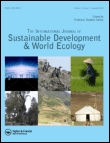
INTERNATIONAL JOURNAL OF SUSTAINABLE DEVELOPMENT AND WORLD ECOLOGY
Scope & Guideline
Fostering knowledge for ecological integrity and development.
Introduction
Aims and Scopes
- Sustainable Development Goals (SDGs):
The journal emphasizes research aligned with the UN SDGs, exploring how various sectors can contribute to achieving these goals through innovative policies and practices. - Ecological and Environmental Sustainability:
It provides a platform for studies investigating ecological processes, conservation strategies, and the impact of human activities on environmental sustainability. - Interdisciplinary Approaches:
The journal promotes interdisciplinary methodologies, integrating insights from economics, sociology, environmental science, and policy analysis to address sustainability challenges. - Technological Innovations:
Research that evaluates the role of technological advancements in promoting sustainable practices across sectors, particularly in energy, agriculture, and urban development, is a core focus. - Circular Economy and Resource Management:
The journal encourages papers that explore circular economy principles, waste management, and resource efficiency as pathways to sustainability. - Climate Change Mitigation and Adaptation:
It addresses the impacts of climate change and strategies for adaptation, focusing on resilience-building in vulnerable communities and ecosystems.
Trending and Emerging
- Renewable Energy and Sustainability:
There is a growing emphasis on the role of renewable energy sources in achieving sustainability goals, with numerous studies exploring their impacts on carbon emissions and energy policies. - Urban Sustainability and Smart Growth:
Research related to urban planning, smart cities, and sustainable urban growth is on the rise, highlighting the importance of integrating sustainability into urban development strategies. - Climate Change Resilience Strategies:
Increasing attention is being paid to resilience strategies that address the impacts of climate change on communities and ecosystems, reflecting a broader recognition of climate adaptation needs. - Circular Economy Models:
The concept of a circular economy is gaining momentum, with studies focusing on innovative business models and practices that promote resource efficiency and waste reduction. - Socio-Ecological Systems and Governance:
Emerging research is exploring the interconnections between social and ecological systems, emphasizing the need for integrated governance approaches to manage sustainability challenges effectively. - Digital Transformation for Sustainability:
The integration of digital technologies in promoting sustainable practices is becoming a significant theme, with studies examining how digital tools can enhance sustainability efforts in various sectors.
Declining or Waning
- Traditional Ecological Knowledge (TEK):
Although TEK has been a significant area of focus in previous years, recent publications indicate a reduced emphasis on this theme, possibly due to a broader shift towards empirical and quantitative studies. - Agricultural Practices in Isolation:
Research focusing solely on traditional agricultural practices without considering their integration into broader sustainability frameworks has decreased, reflecting a shift towards more holistic approaches. - Local Case Studies without Global Context:
There has been a decline in papers that present local sustainability issues without connecting them to global challenges or frameworks, indicating a move towards more integrative and comparative studies. - Single-Factor Analyses:
Papers focusing on individual factors affecting sustainability, such as isolated economic or environmental assessments, are becoming less common, as the field moves towards more complex, multifactorial analyses. - Narrow Policy Analyses:
Research that evaluates policies in a vacuum, without considering their broader social, economic, or environmental impacts, is waning, as scholars increasingly advocate for comprehensive policy evaluations.
Similar Journals
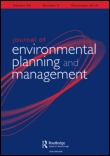
Journal of Environmental Planning and Management
Fostering interdisciplinary dialogue for a sustainable future.The Journal of Environmental Planning and Management, published by Routledge Journals, Taylor & Francis Ltd, is a leading academic journal dedicated to advancing the field of environmental science through innovative research and critical analysis. With a robust impact factor and categorized in Q1 across multiple disciplines, including Environmental Science, Geography, and Fluid Flow, this journal holds a prestigious position in the academic community. It serves as a vital platform for researchers, professionals, and students interested in the complexities of environmental management, policy, and planning, promoting insightful discourse on sustainable practices and innovative solutions. Although the journal does not currently offer Open Access options, it remains widely accessible through institutional subscriptions, ensuring that pertinent research reaches a broad audience. Since its inception in 1992, the journal has shown a commitment to excellence, making significant contributions to our understanding of environmental issues and the interplay between human activity and natural systems. The Journal of Environmental Planning and Management invites submissions that not only push the boundaries of existing knowledge but also foster interdisciplinary collaboration in the quest for sustainable development.

Mitigation and Adaptation Strategies for Global Change
Pioneering Strategies to Combat Global ChangeMitigation and Adaptation Strategies for Global Change is a prestigious journal published by SPRINGER, focusing on the critical areas of ecology and global change. With an impressive impact factor that places it in the Q1 and Q2 quartiles in their respective categories, this journal serves as an essential platform for researchers, professionals, and students actively engaged in addressing the challenges posed by climate and environmental changes. Since its inception in 1996, the journal has evolved to cover a wide range of interdisciplinary topics, fostering a holistic understanding of mitigation strategies and adaptation practices worldwide. Located in the Netherlands, it benefits from a robust editorial board and significant contributions from leading experts in the field. Although it does not currently offer Open Access, the journal's rigorous peer-review process ensures that only high-quality research is disseminated, making it a valuable resource for anyone seeking to remain at the forefront of global change research.
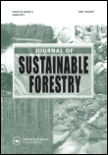
Journal of Sustainable Forestry
Exploring the intersection of ecology and forest management.Journal of Sustainable Forestry is a premier academic publication dedicated to advancing knowledge and practices in the field of sustainable forestry and environmental management. Published by Taylor & Francis Inc in the United Kingdom, this journal has been a cornerstone for researchers and professionals since its inception in 1992. With an impressive reputation, it boasts a 2023 Q2 ranking in Food Science, Forestry, and Geography, Planning and Development, highlighting its significant contribution to interrelated disciplines. The journal’s impact is further underscored by its Scopus ranking, especially in Forestry where it holds the 43rd position out of 174 publications, placing it in the 75th percentile. Although not open access, the journal remains committed to providing innovative research and practical insights into forest management, ecological sustainability, and policy development. As the field of sustainable forestry continues to evolve, the Journal of Sustainable Forestry serves as an essential resource for those committed to advancing sustainable practices globally, fostering a deeper understanding of how sustainable forestry can contribute to environmental resilience and biodiversity conservation.
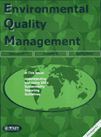
ENVIRONMENTAL QUALITY MANAGEMENT
Pioneering Solutions for Sustainable ManagementENVIRONMENTAL QUALITY MANAGEMENT is a respected journal published by WILEY, focusing on interdisciplinary studies that merge environmental science with public health, management, policy, and law. Since its inception in 1991, this journal has provided a platform for researchers and practitioners to share innovative insights and advancements in understanding environmental quality and its impacts on human health and the ecosystem. With an ISSN of 1088-1913 and an E-ISSN of 1520-6483, it holds a significant position in the academic community, evidenced by its presence in the Q3 quartile across several categories, including Management, Monitoring, Policy and Law, as well as Pollution and Waste Management. Although it is not an open-access journal, it continues to be a vital resource for those in the environmental sector, offering robust evaluations and discussions that advance knowledge and foster improved practices. With Scopus rankings demonstrating its relevance among other titles in the field, ENVIRONMENTAL QUALITY MANAGEMENT plays a crucial role in shaping discourse and informing policy in an increasingly vital area of study.
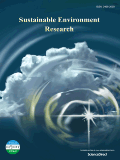
Sustainable Environment Research
Connecting minds for a healthier planet.Sustainable Environment Research, an esteemed journal published by BMC, serves as a pivotal platform for disseminating innovative research in the fields of Environmental Engineering, Pollution, and Renewable Energy. Established in 2016 as an Open Access journal, it facilitates the widespread sharing of knowledge and advancements across the globe, reflecting its commitment to enhancing environmental sustainability. With an impressive Q1 ranking in multiple categories, including Water Science and Technology and Pollution, the journal is recognized for its significant impact, currently holding a rank of 31st in Environmental Science - Water Science and Technology. The journal actively invites researchers, professionals, and students to contribute to crucial discussions around sustainable practices and technologies, thus addressing worldwide environmental challenges. Based in Taiwan but accessible internationally, Sustainable Environment Research provides a valuable resource for those dedicated to advancing the science of sustainability.
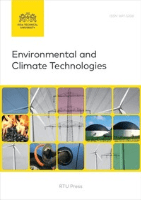
Environmental and Climate Technologies
Exploring Frontiers in Environmental Science and Renewable Energy.Environmental and Climate Technologies is a premier open-access journal dedicated to advancing knowledge in the fields of environmental science and renewable energy. Published by SCIENDO since 2009, this journal plays a crucial role in disseminating innovative research and interdisciplinary studies that address the pressing challenges posed by climate change and sustainable development. With its current positioning in the Q2 quartile for Environmental Science (miscellaneous) and Q3 for Renewable Energy, Sustainability and the Environment, it is recognized for its significant contributions to the academic community, ranking #107 out of 233 in General Environmental Science and #161 out of 270 in Renewable Energy. Hailing from Germany and operating under an open-access policy, Environmental and Climate Technologies ensures that research remains accessible to a global audience, fostering collaboration and discussion among researchers, professionals, and students alike. The journal invites rigorous scientific inquiries and practical solutions that can mitigate the impact of climate-related issues, making it a vital resource for those committed to environmental stewardship and sustainability.

Acta Scientiarum Polonorum-Formatio Circumiectus
Pioneering research at the intersection of nature and technology.Acta Scientiarum Polonorum-Formatio Circumiectus is a distinguished open-access journal published by WYDAWNICTWO UNIWERSYTETU ROLNICZEGO HUGONA KOLLATAJA KRAKOWIE, dedicated to advancing knowledge in the fields of ecological modeling, environmental engineering, nature and landscape conservation, and water science and technology. With a commitment to accessibility since its inception in 2006, this journal provides a platform for researchers, professionals, and educators to disseminate their findings to a global audience. Although currently categorized in the Q4 quartile across various ecological disciplines, the journal's aim is to foster critical discussions and innovative approaches to pressing environmental challenges. The journal is based in Poland, and its scope encompasses a wide array of research areas pertinent to contemporary environmental studies. Acta Scientiarum Polonorum serves as an essential resource in its field, encouraging empirical research and theoretical advancements that collectively contribute to sustainable development and environmental stewardship.
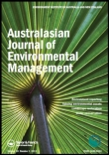
Australasian Journal of Environmental Management
Advancing sustainable practices for a greener future.The Australasian Journal of Environmental Management is a highly regarded publication in the field of environmental studies, published by Taylor & Francis Ltd. With an ISSN of 1448-6563 and an E-ISSN of 2159-5356, this journal serves as a pivotal platform for disseminating innovative research and insights pertaining to the management of environmental resources across Australia and broader geographical contexts. The journal has achieved impressive rankings, including a Q2 classification in Geography, Planning and Development and a Q3 in Management, Monitoring, Policy and Law for 2023, highlighting its relevance and impact within the academic community. Researchers and professionals are encouraged to contribute to its mission of advancing knowledge and practices in sustainable environmental management. With a publication history spanning from 1996 to 2024, the journal remains committed to fostering interdisciplinary collaboration and critical discourse on environmental challenges. While access options may vary, the significance of this journal as a resource for students and practitioners alike cannot be overstated, as it shapes contemporary perspectives on environmental policy and management.
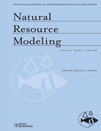
NATURAL RESOURCE MODELING
Transforming data into actionable strategies for resource sustainability.NATURAL RESOURCE MODELING is a prestigious academic journal published by Wiley, focusing on the critical intersection of environmental science and modeling and simulation techniques. With an ISSN of 0890-8575 and an E-ISSN of 1939-7445, the journal has established itself as a vital resource for scholars and practitioners since its inception in 1990. Covering a wide array of topics related to the sustainable management and modeling of natural resources, the journal currently holds a reputable Q2 ranking in Environmental Science and a Q3 ranking in Modeling and Simulation, highlighting its impact within these fields, particularly with Scopus rankings placing it in the 60th and 57th percentiles, respectively. Although not an Open Access journal, it offers researchers, professionals, and students invaluable insights and methodologies pertinent to advancing the knowledge base in environmental management. The journal's commitment to high-quality research and its comprehensive scope reinforce its importance as a go-to publication for anyone interested in the sustainable future of our natural resources.
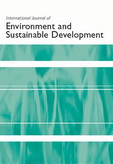
International Journal of Environment and Sustainable Development
Transforming ideas into action for global sustainability.The International Journal of Environment and Sustainable Development, published by INDERSCIENCE ENTERPRISES LTD, serves as a vital platform for researchers, practitioners, and policymakers engaged in the multidisciplinary fields of geography, renewable energy, and environmental sustainability. With an ISSN of 1474-6778 and an E-ISSN of 1478-7466, this journal has been disseminating critical research since its inception in 2002 and continues to expand its scope through 2024. Recognized within the Q3 quartile in Geography, Planning and Development and Q4 in both Management, Monitoring, Policy and Law and Renewable Energy, Sustainability and the Environment, it provides valuable insights into contemporary issues affecting our planet. While access options are limited to non-open access formats, the journal remains essential for those seeking to enhance their understanding of sustainable development practices and policies in a global context. The International Journal of Environment and Sustainable Development is not only an academic repository but also a catalyst for dialogue and innovation within the environmental sciences.